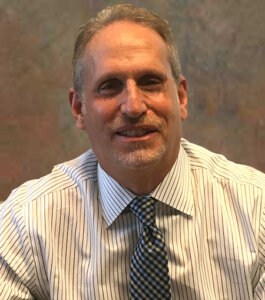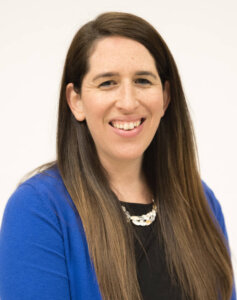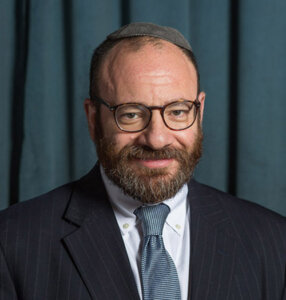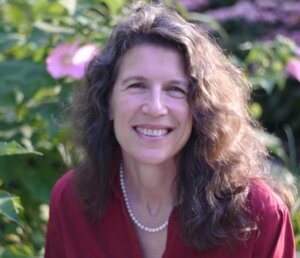Sermonizing about Israel can be risky. These High Holidays, some rabbis feel compelled to.
Israel ‘is at an inflection point,’ one rabbi said

Israel’s prime minister, Benjamin Netanyahu, center, speaks with National Security Minister Itamar Ben-Gvir, right, and Justice Minister Yariv Levin, left, during a Knesset meeting in 2023. Photo by Menahem Kahana/AFP via Getty Images
American rabbis often avoid opining about Israel. The topic can be fraught. But political upheaval in Israel has pushed many, who fear for Israel’s future, to take it up in their High Holiday sermons this year.
Rabbis themselves predict that a good number of these sermons — reflecting widespread American Jewish dismay with the Israeli government’s rightward turn — will lambaste its plan to overhaul the judiciary and entreat their congregants to take a stand. But expect marked variations on those themes — even from rabbis in the same family.

Rabbi Bradd Boxman and his daughter, Rabbi Ariel Boxman, serve Reform synagogues about 100 miles apart in South Florida. Both are fiercely Zionist, and both are troubled by the political turmoil in Israel. They will both discuss it in their upcoming High Holiday sermons. But they are taking notably different tacks.
Ariel Boxman, the director of lifelong learning at Temple Shalom in Naples, does not believe American Jews should have a say in Israeli domestic politics. So she plans to call on her congregants “not to be taking sides within the issue of judicial reform, but rather urging both sides to the table.”
Her father, who is the spiritual leader of Congregation Kol Tikvah in Parkland, will urge his congregants to get off the sidelines. On Yom Kippur, he’ll warn of Israel’s demise, and implore them to join the demonstrations, donate to the cause and talk to their elected officials.
“I’m standing on the side of what I believe is history, which is that this country is at an inflection point and we need to stand for justice and democracy and freedom,” he said.
A changing calculus on the Israel sermon
American Jews, who generally report feeling connected to Israel, often disagree about its policies and government, whether it’s the occupation, the Iran nuclear deal or its response to Hamas missile attacks. And American Jews have espoused different responses to the judicial overhaul plan, which has prompted hundreds of thousands of Israelis to protest in the streets in past months.

The plan, pushed by Prime Minister Benjamin Netanyahu, has inspired some American Jewish community leaders take rare trips to Israel in hopes of defusing what is often described as an existential crisis for the Jewish state, one that could irreparably damage its democratic underpinnings.
As weeks without resolution have turned to months, and with the Knesset now putting the pieces of the overhaul into place, more American pulpit rabbis are deciding that they need to talk to their congregations about Israel. And more are taking the elder Boxman’s approach.
With the ascendance of the religious right, the roiling protests and the 50th anniversary of the Yom Kippur War, it’s almost become harder to avoid Israel this year than address it, said Rabbi Rick Jacobs, president of the Union for Reform Judaism.
Israel appeals are a fixture of High Holiday services at many American congregations. But whereas generally rabbis will try to craft a message that won’t tick off too many of their members, this year Jacobs thinks they’re more likely to spend down some of that political capital.
“We’re seeing a different type of speaking up,” Jacobs said. “This is the moment to give a sermon that’s full-throated — very supportive of the ideals of Israel, and therefore very concerned about the erosion of those ideals.”
American Jewish stakeholders
One factor influencing the heightened sense of urgency is the way the plan, which would weaken the Israeli Supreme Court, would likely hurt non-Orthodox Jews in the U.S. and around the world. The court has intervened to affirm Conservative and Reform Jews several times over the years, including by ruling their converts could make aliyah through the Law of Return.

Conservative, Reform and Reconstructionist rabbis who speak out against Israel’s domestic politics may also be emboldened by the backing of their movements, which have condemned the judicial overhaul in formal public statements. (The Orthodox Union has mostly stayed on the sidelines, with its executive director for public policy, Nathan Diament, telling The New York Times that many in the movement “are worried about the divisiveness that the process has caused.”)
But for some rabbis, the situation in Israel has deteriorated to the point that they can’t ignore it.
“The biggest issue is the unholy alliance between an ultra-nationalist politics and an unethical, vicious religion that is all too eager to be violent and to be racist,” said Rabbi Jeremy Kalmanofsky, spiritual leader of Ansche Chesed, a Conservative synagogue in Manhattan. “So, yeah: One can be more pointed this year because of the urgency.”
Kalmanofsky recognized that not all of his congregants are on the same page as him philosophically. Part of his challenge for him will be striking a balance between a clear-eyed critique without discouraging people about Israel overall.
“I will always be a liberal Zionist and believe in a democratic and Jewish state,” Kalmanofsky said. “Some people who are going to listen to me on Yom Kippur are going to say, ‘We tried that. It didn’t work.’ And I’m going to make an argument against that approach.”
‘We’re culpable’

A few rabbis of liberal-leaning congregations told me that a significant chunk of their members stopped caring about Israel years ago. Rabbi Michal Woll, who leads Shir Hadash, a Reconstructionist synagogue in Milwaukee, learned the limit of her members’ emotional investment when she suggested Israel as a topic in a synagogue discussion group earlier this year.
“The people who were in the room were like, ‘Yeah, we don’t really care anymore,’” Woll said.
She’s using her Kol Nidre address to try to re-engage them. This is a moment, Woll thinks, to remind them that it affects them whether they care about it or not.
“Even if we’re Jews and not Israelis, the world looks at us as Jews in the U.S. and we’re culpable,” Woll said.























